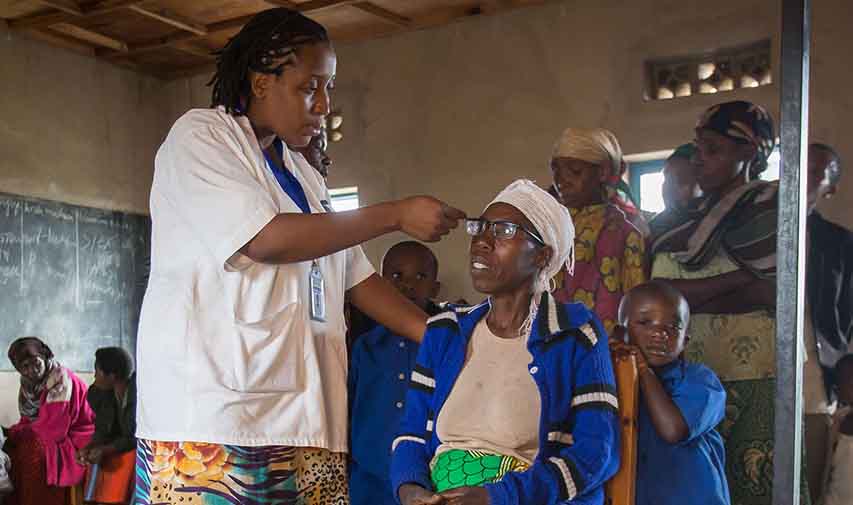By: Ruth Douglas
Send to a friend
The details you provide on this page will not be used to send unsolicited email, and will not be sold to a 3rd party. See privacy policy.

THE LIVE SESSION OF THIS DEBATE HAS ENDED: SCROLL DOWN TO BOTTOM OF PAGE TO READ THE COMMENTS
An estimated 1 billion people globally have some form of disability, and 80 per cent of these are from low- and middle-income countries. Yet data and evidence on interventions to improve the lives of this marginalised sector of society are starkly lacking.
Our panelists are:
-
Hannah Kuper, director of the International Centre for Evidence in Disability, a research group at the London School of Hygiene and Tropical Medicine
The International Centre for Evidence in Disability is a research group at the London School of Hygiene and Tropical Medicine that aims to expand the global evidence based on disability. Hannah Kuper is an epidemiologist by training and has more than 20 years of experience working in global health. She co-leads the DFID-funded PENDA project that works to improve evidence on disability-inclusive development through the conduct of impact evaluations.
-
Ola Abualghaib, manager of the technical secretariat of the UN Partnership to Promote the Rights of Persons with Disabilities
Ola Abualghaib has more than 20 years of experience working on gender and disability in development including in fragile and crisis affected settings in the Arab States, Africa and Asia. She was previously the director for global influencing and research at Leonard Cheshire Disability in London and has worked with the UN system at global, regional and country level to support disability inclusive policies and programmes. She also served as the Vice Chair of the International Disability and Development Consortium (IDDC) and a board member of the Disability Rights Funds.
-
Daniel Mont, co-president of the Center for Inclusive Policy
Daniel Mont has extensive experience in the area of disability and inclusive development, and has worked as a senior economist with the World Bank and a wide range of other international development agencies, governments, and civil society organisations. He served as chair of the UN Statistical Commission’s Washington Group on Disability Statistics analytical working group and worked with UNICEF and UNESCO on building inclusive education management information systems. He has also assisted several countries to develop disability determination eligibility tools for social protection programs.
-
Elena Schmidt, Sightsavers director of strategic programme innovations and development, evidence and research team
Elena Schmidt has over 20 years’ experience in public health and development at national and international levels, including her work for the World Health Organization and DfID. She has also held a range of academic posts teaching public health, epidemiology and international health and supervising a range of research programmes
-
Asim Zafar, founder of the Saaya Association of Persons with Disabilities in Islamabad and secretariat coordinator of the Community Based Inclusive Development Network
Disabilities campaigner Asim Zafar created the Saaya Association of Persons with Disabilities in Islamabad in 2009 and has been advocating for Pakistan’s government to approve its first comprehensive national disability law. He has also been campaigning for them to incorporate the Washington Group questions into the national census. The approach is being piloted in areas of Pakistan at the moment.
-
Lorraine Wapling, inclusive development consultant and researcher in disability and development
A trained teacher by profession, Lorraine Wapling has 20 years’ experience working in the development sector focusing on the promotion of disability-inclusive development and has been a senior disability expert for Britain’s Department for International Development (DfID) -funded Girls Education Programme since 2017. She was embedded in DfID’s policy and research department as their disability specialist for several years, helping to lay the foundations for DfID’s current disability strategy and remains a key advisor at this level.
Hashtags: #SciDevDebate #IDPD2019
The debate is still open, to add your comment, you will need to log into the debate session using a very simple registration process and you’ll be ready to add your comments. Or you can comment as a guest.














